Laparoscopic Sleeve Gastrectomy
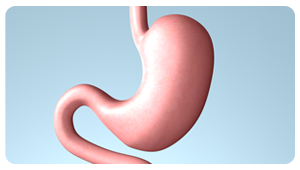
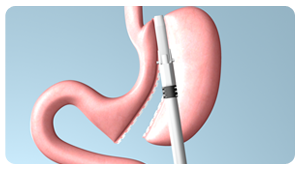
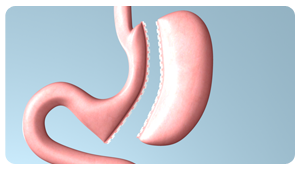
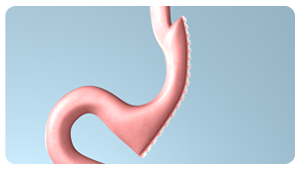
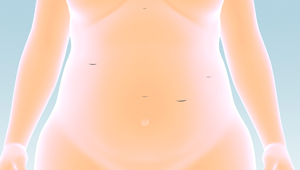
wound site
Want to have a better control of eating volume without the need to avoid various foods? Laparoscopic sleeve gastrectomy, a restrictive laparoscopic surgery, is the most widely performed weight loss surgery in Asia. By reducing the stomach size, patients will feel a sense of fullness much earlier, and thereby substantially reducing the volume intake. Besides more effective weight loss, this surgery is effective in diabetic treatment with a remission rate of almost 70%. This surgery can significantly suppress the secretion of Ghrelin – a powerful appetite stimulating hormone. Patients recover quickly from surgery and are able to return to their daily activities in a short period of time. In order to achieve your target body weight, patients will have regular follow up with Dr. Wong and his team of allied health specialist (including dietitian and physiotherapist).
Procedure of laparoscopic sleeve gastrectomy
This surgery is indicated for patients with BMI over 30. Two weeks prior to surgery you are instructed to have only fluid diet and milk supplements. The surgery is performed under general anesthesia. Dr. Wong will make 4-5 small (1-1.5cm) incisions and remove 70-80% of the stomach in order to create a ‘banana’ shaped stomach. The entire procedure last for about one and half hours and patients will be discharged from hospital 3-4 days after surgery.
After your surgery, fluid and congee diet must be maintained within the first month in order to allow for good wound healing. After then, a “new” normal diet can be resumed. All patients must follow dietitians’ advise to ensure effective weight loss.
Benefits of laparoscopic sleeve gastrectomy
- Obvious weight loss: ~70-80% of the stomach will be removed thus significantly reduce stomach volume and induce a much earlier sense of satiety.
- Effective diabetic control: with the reduced stomach volume and changes in hormones, such as increasing glucagon-like peptide-1 (GLP-1) and peptide YY (PYY) for diabetes treatment that is stimulated by faster stomach emptying.
- Reduced appetite: There is an immediate reduction in levels of the appetite stimulating hormone – Ghrelin, thus significantly reduce patient’s hunger sensation and appetite.
Risks of laparoscopic sleeve gastrectomy
- Low risk: overall mortality risk is <1%.
- Irreversibility: once the greater curve of the stomach is removed, normal stomach anatomy cannot be reinstated.
- Heartburn: patients may experience a higher incidence of reflux / heartburn following surgery.
The information on this website is for general educational purpose only.
Readers should consult their physician before considering treatment, and should not interpret their condition solely based on the information above.


